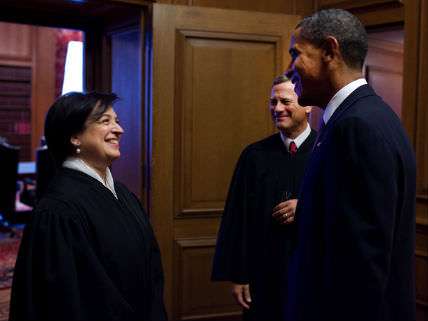Supreme Court Rules Against Immigrant Children Who 'Age Out' During Visa Process
U.S. immigration law grants preferential treatment to the foreign relatives of U.S. citizens who are seeking visas. That preferential treatment extends to the children of those relatives. But what happens if the children reach adulthood (turn 21) before the visa process is completed? In a divided ruling issued on Monday, the U.S. Supreme Court said federal officials may send those adult children back to the end of the line.

Writing for a plurality in Scialabba v. Cuellar de Osorio, Justice Elena Kagan, joined by Justices Anthony Kennedy and Ruth Bader Ginsburg, held that federal immigration officials were entitled to deference from the Court in their decision to interpret federal law in such a way that it prevented "aged out" children from "piggy-backing on a parent" in the visa process. Writing separately, Chief Justice John Roberts, joined by Justice Antonin Scalia, concurred with that judgment.
In dissent, the unusual alliance of Justices Sonia Sotomayor, Clarence Thomas, and Stephen Breyer took the opposite view. "As judicious as it can be to defer to administrative agencies, our foremost duty is, and always has been, to give effect to the law as drafted by Congress," Justice Sotomayor wrote for those dissenters. And in her view, Congress plainly intended for "aged out" children to retain their "original priority date" in the visa process.
The decision in Scialabba v. Cuellar de Osorio is available here.


Show Comments (21)